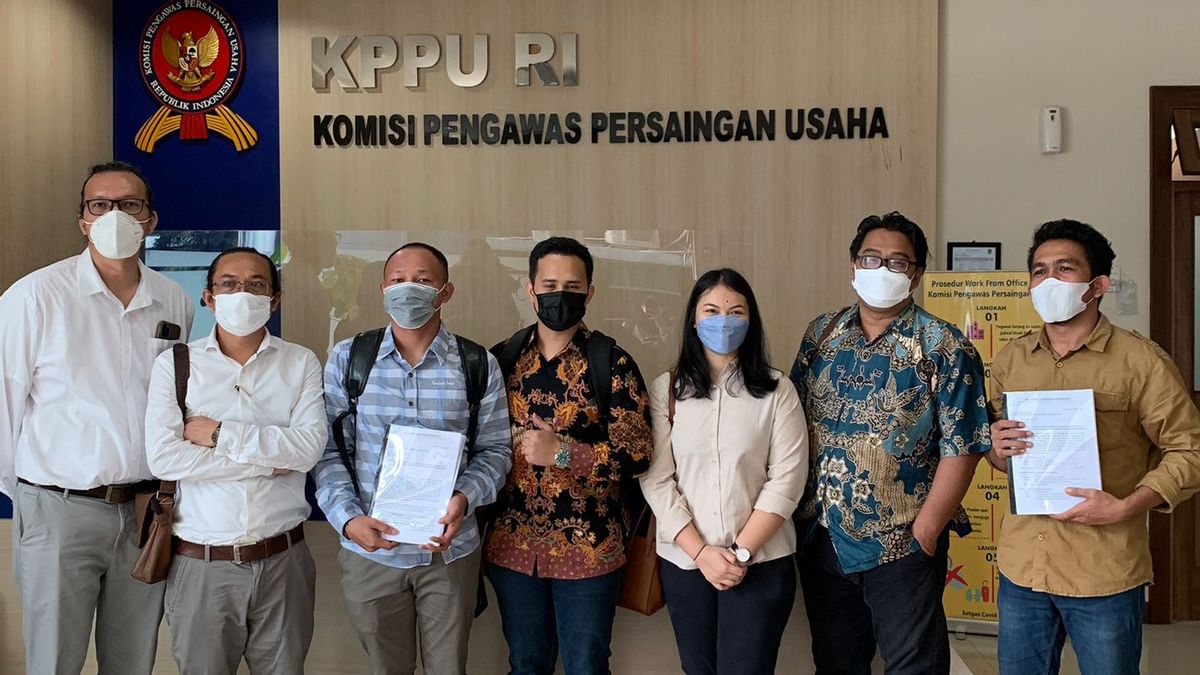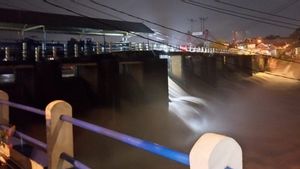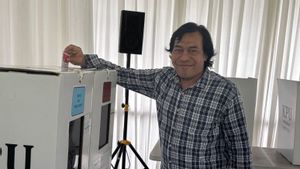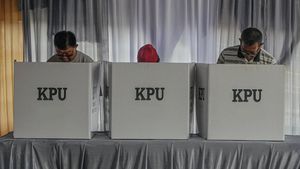JAKARTA - On Wednesday, March 15, the Palm Oil Farmers Union (SPKS), the Karya Mandiri Cooperative and the Renyang Bersatu Plantation Cooperative together with the Plantation Justice Advocacy team reported allegations of monopolistic practices and unfair business competition against the biodiesel type biofuel industry to the Commission. RI Business Competition Supervisor (KPPU). The parties reported are PT Wilmar Nabati Indonesia, PT SMART, Tbk and PT Musim Mas.
According to the coordinator of PELAPOR's attorney, Janses E. Sihaloho, there are several actions by the company that are allegedly related to monopolistic practices and unfair business competition, namely oligopsony and/or vertical integration of the biodiesel type biofuel industry.
Janses added that the direct appointment mechanism for the amount of biodiesel allocation is only intended for the Reported Parties through their subsidiaries. This is proven by the Decree of the Minister of Energy and Mineral Resources of the Republic of Indonesia Number: 1935 K/10/MEM/2018, Decree of the Minister of Energy and Mineral Resources of the Republic of Indonesia Number: 2018 k/10/MEM/2018, Decree of the Minister of Energy and Mineral Resources Mineral Resources of the Republic of Indonesia Number: 195 K/10/MEM/2020 and Decree of the Minister of Energy and Mineral Resources of the Republic of Indonesia Number: 252.K/10/MEM/2020 concerning Stipulation of Oil Fuel Business Entities and Biodiesel Business Entities and Allocation of Volume for Mixing Fuel Oil Types of Diesel Oil.
Another indication given by Janses is the annual increase in oil palm land belonging to the reported parties which exceeds 100 thousand hectares according to the regulations. This increase in land indicates an increase in market demand for the supply of FFB.
"The welfare of independent smallholders and partnership smallholders should also increase, but in fact this is not the case. There are still many independent smallholders and partnership planters who are disadvantaged over the selling price of their oil palm FFB. This is alleged to have fulfilled the elements in Article 17 paragraph (1) and paragraph ( 2) letter c of Law No. 5/1999, namely control over the production and/or marketing of goods which may result in monopolistic practices and/or unfair business competition," explained Janses.
In addition, the Reporting Team also highlighted the use of palm oil funds that were not in accordance with the Plantation Law. It is known that the total Palm Oil Plantation Fund managed by BPDP-KS since 2015-2019 is IDR 47.28 trillion. The majority of this total fund is allocated not for the benefit of farmers, but for the biodiesel industry.
The allocation gap is clearly illustrated in the budget realization in 2015-2019, where 89.86 percent of the total funds or Rp. 30.2 trillion is allocated for biodiesel incentives. Ironically, when the COVID-19 pandemic began to spread, the government disbursed a subsidy of IDR 2.78 trillion for biodiesel.
"From the various descriptions above, the Report of the Reporting Party to the KPPU is quite well founded and reasonable. The Reported Parties are alleged to have carried out monopolistic practices and unfair business competition, namely oligopsony and/or vertical integration in accordance with Article 13 and Article 14 of Law 5/1999 to the Business Competition Supervisory Commission. RI (KPPU)," said Janses.
Gunawan from the National Council of Oil Palm Farmers Union (SPKS) hopes that this report will not only expose the practice of oligopsony in biodiesel, but also look at the unfairness of the palm oil supply chain as a whole, which also has an impact on the availability of food products, such as the cooking oil crisis that occurred recently. this.
Marcelinus Andri from SPKS assessed that, in terms of the budget, almost 90 percent of BPDPKS' funds were for biodiesel and most of it was channeled to the 3 reported companies. Even though people's plantations control 40 percent of the national oil palm.
"The subsidy for biodiesel for the company straddles the regulations. In the Plantation Law, there is no mandate that palm oil funds be allocated for biodiesel," explained Marelinus.
Regarding land inequality, Marcelinus assessed that there is an obligation for companies to develop plantations with a percentage of 20 percent, but this rule is also not fulfilled. This strengthens the monopoly of land tenure by the company.
Edy Sutrisno, Director of TUK Indonesia, assessed that, regarding this report, KPPU should be able to easily trace this matter. Because, he said, KPPU already has many studies which indicate the existence of a monopoly from a handful of these companies.
Edy said, in addition to land tenure, which exceeds the management regulation of 100 thousand hectares, the company also controls fruit suppliers, so they can easily regulate FFB prices at the farmer level.
Gunawan assessed that the unequal portrait of BPDPKS' budget realization also illustrates the minimal policy determination space for farmers. This confirms the structure of BPDPKS which is dominated by company people.
Regarding this report, the Reporting Attorney, Janses hopes that KPPU can issue optimal fines, if necessary, revocation of business for companies that clearly practice monopolistic practices. In addition, it is hoped that KPPU can encourage changes to laws and regulations and policies that are more pro-farmers.
The English, Chinese, Japanese, Arabic, and French versions are automatically generated by the AI. So there may still be inaccuracies in translating, please always see Indonesian as our main language. (system supported by DigitalSiber.id)













